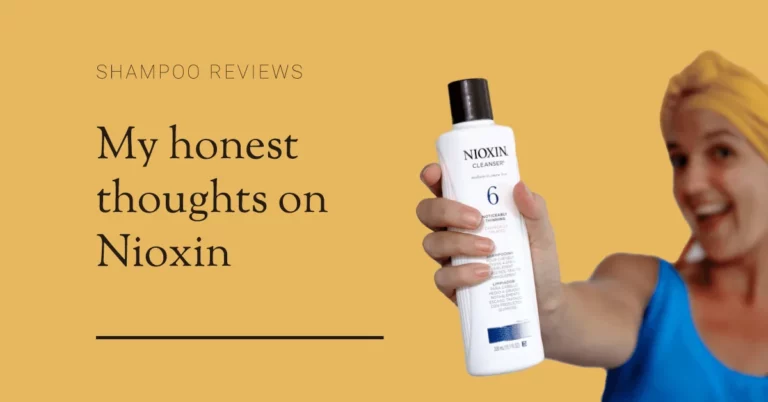
Key Ingredients of an Alopecia Diet

Hair loss is a tricksy beast. One of those things where you don’t know what’s causing it, or what could be a possible cure. But you can prevent it from getting worse; starting with looking after yourself as much as possible. This includes following an ‘alopecia diet’.
You see, by taking active steps to improve your physical and mental health, you might notice that your hair grows back in no time. Imagine! These steps include getting a decent sleep, squeezing in some exercise, and watching what you eat. (Not literally. That’d be weird).
When it comes to the kind of diet that alopecians should follow, there are some dos and don’ts to bear in mind; things to include and things to avoid.

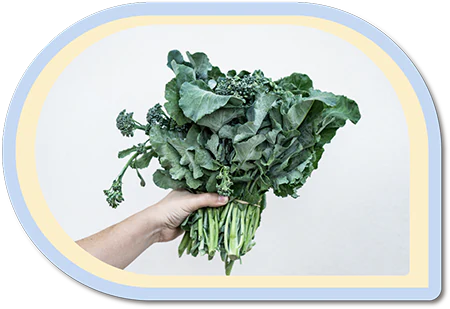
The world is kale-mad right now, and with good reason. It’s because dark leafy greens (like kale, broccoli and spinach) come with all kinds of immune-boosting functions.
Kale, in particular, is great if you have any digestive issues. This is down to its high-fibre content, and the fact that it actually has more iron per calorie than beef! Kale mightn’t be as widely regarded as say, turmeric, for its anti-inflammatory properties – but it should be. Because just one cup of the curly green stuff contains 10% of your RDA of Omega-3 fatty acids; the guys that are great for those with autoimmune disorders.
Dark leafies are rich in calcium too, which is brilliant news for your teeth, your nails and – you got it – your hair.
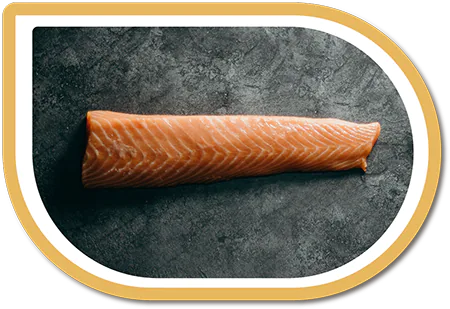
If you’ve got alopecia, chances are your scalp feels drier than an AA Christmas party. Flaky and parched, it ain’t the best environment for hair follicles to burst forth new fruit. (Or hair, for that matter.)
So give your scalp ‘n’ skin some oily goodness with some healthy fats. Eat plenty of Omega-soaked fish like mackerel and salmon or, if you can’t stand the stuff, take some fish oil supplements instead. (I’ve been taking these supplements for a long time now; if I go off them for even a week I notice how quickly my skin dries out!)
Tofu is another great way to get your intake of polyunsaturated fats like omega-3 alpha-linolenic acid, which nourish your scalp environment and support immune system/brain health too! Check out more benefits of tofu in this great article from Total Shape.
Whether you’re cooking with tofu, meat or veggies, try and use extra virgin olive oil or organic cold-pressed coconut oil whenever possible. Tasty, nutritious, and great for your hair.

While caffeine is actually a great hair growth stimulant when applied topically, it isn’t so good for those of us with hormone problems; specifically, those of us with low or heightened levels of cortisol.
Why, you might ask? Well, caffeine interferes with the body’s natural cortisol levels, meaning this ‘stress hormone’ can cause you to feel overly anxious, upset and stressed out. Now, I’ll admit it – I do enjoy my morning cup of coffee (unfortunately I can’t resist!) – but any more would give me a severe case of the jitters. So cut down the caffeine to a single cup a day, if you can.
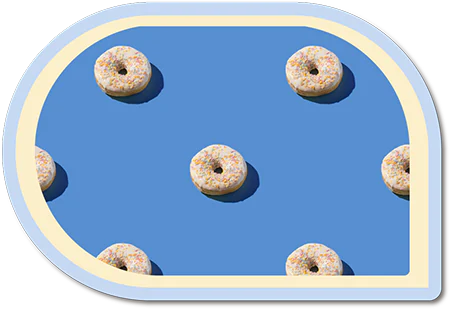
If you’ve got an autoimmune condition like alopecia, sugar is probably one of the worst things you could feed it. Why? Well, for one it can cause inflammation in the digestive tract, which can lead to what’s known as a ‘leaky gut’.
When this takes place, your gut wall becomes more permeable, allowing harmful toxins to pass through. And because sugar prevents our white blood cells from destroying these toxins quickly, they’re allowed to linger until they trigger an autoimmune response. This isn’t the best news for your hair because the immune system will then target all ‘foreign invaders’ that it doesn’t recognise, even the healthy cells.
Sugar also brings a heap of problems to our thyroids, our cortisol levels and comes with plenty more issues. So take my advice: cut out what you can.
Great question. I’ll tell you – what’s more, I’ll even tell you why…
Because the seeds contain nurturing fatty acids like linoleic and oleic acid, plus plenty of Vitamins E and K. Sesame oil also promotes circulation, soothes an itchy scalp and gives added moisture to dry or brittle locks. Use the oil in cooking for general health benefits, or warm some up and rub it on your noggin before bedtime. You might smell like a takeaway, but it’s worth it.
Ginger is an anti-inflammatory substance, which is what those of us with autoimmune issues badly need. It also contains magnesium (which helps us relax) and Vitamin B6 (which promotes healthy hair and nails). Eat it as often as you can, and rub some on your patches, too. Tip: Fresh garlic and fresh onion juice are also great natural ingredients to rub on your scalp and to boost circulation! 🙂
Loaded with all kinds of health benefits, turmeric also comes with some anti-inflammatory and immune-boosting functions that are great when we’re feeling feeble. There’s actually a lot of research to show turmeric’s anti-inflammatory capacities, so I drink it with ginger every day. Note: If you don’t want to get yellow-stained fingers by chopping too much turmeric, you could always buy turmeric capsules instead. This brand of supplements contain BioPerine, a black pepper extract that helps you absorb nutrients faster.
Psst: Read my full review about the joys of turmeric for hair growth – and more on these supplements – in this post.
The green champions that between them are fortified with lovely vitamins A, C, E, K and B6… plus a tonne of calcium, iron, magnesium and fibre, too. I enjoy them either as a salad or in a stir-fry (tip: for the kale, massage it for a few minutes in olive oil first!) Most recently, since starting my AIP diet (more on that in a sec), I’ve been adding spinach to avocado, frozen banana and cashew milk and enjoying a green smoothie every morning through my very favourite bamboo straw – which a friend made me for my wedding party! Whatever way you eat yours, you’re getting some green goodness in the bargain.
The above tips involve eating healthily, cutting out harmful foods and ingesting plenty of nurturing ones. But often, for those with autoimmune conditions, that won’t be enough. (Sorry.)
What you might need is a complete overhaul, especially if you’ve got what’s known as “leaky gut syndrome”. And doing something like an Autoimmune Protocol (AIP) diet could REALLY help you out if you’ve got gut issues causing inflammation elsewhere in the body. Gluten is seen as one of the main culprits in triggering the body’s inflammatory response – which leads to it attacking perfectly healthy hair follicles – so this journey usually begins with going gluten-free.
I thought I knew about eating healthily before: eat plenty of fruit and veg, avoid sugar and processed foods etc. But I knew nothing about the idea of a “leaky gut” or “intestinal permeability” – and how they could lead to hair loss. So if you’ve got leaky gut, it doesn’t matter how healthy your diet is, because it can prevent you from absorbing nutrients in the first place. The only way is to “heal your gut” with a cleanse, followed by a supplementation plan and an elimination diet – essentially, to press the ‘reset’ button and give your immune system a fresh start.
The more about gut health I read online, the more interested I became. Until I eventually found this fascinating book, The Autoimmune Solution, which kickstarted my whole nutrition and autoimmunity journey and led me into the wonderful world of Functional Medicine.
What I’ve learned, after a lot more research on the topic, is that we alopecians can suddenly have “trigger foods”, even when we’ve never seemingly had a problem with them before. They could be making our alopecia much worse and the condition could be reversed entirely if we just knew what foods to eliminate. And how do we do this?
Well, we start off by being pretty strict on ourselves; cutting out dairy, gluten, pulses, eggs and unsprouted grains for a few months and replacing them with fish, good fats, plus lots of fruit and veggies. A good probiotic and other gut-healing supplements are also an important part of the plan. And that’s what I decided to do.

Another great question! Like I said, before you can benefit from all the nutrients your new diet can bring you, you’ll need to make sure your gut is in good condition.
When I went to see a Functional Medicine doctor in July 2019, who diagnosed with gut dysbiosis, I realised… Mine wasn’t! So I started taking a powerful probiotic and fish oils regularly (among other things), which reduced my inflammation, gave me a massive energy boost, cleared up my skin and even helped my hair to grow (not all of it, unfortunately, but the condition improved a lot).
The following brands are similar to the ones I tried (which I ordered from a UK site). They are:
Psst… Update May 2020: I actually just tracked down many of the supplements I’m on right now. Check them out here:
Note: these supplements may not be exactly what you need as they were recommended based on my individual microbiome test results. But anyone with gut issues would benefit from taking, at the very least, a good probiotic and fish oils.
This is the first step you’ll need to take in changing up your diet. Because there’s no point in taking a bunch of supplements if you don’t actually need them!
A microbiome test assesses what’s going on in your gut right now – any bad bacteria lurking, whether you’re deficient in good bacteria, and what foods could be triggering intolerances or allergies – leading to inflammation and its symptoms like anxiety, mood swings, digestive problems and hair loss.
I got tested in July 2019, when my FM doctor arranged my microbiome test through a company called Geneva Labs. The second time, in September 2020, it was through Doctor’s Data. Both companies have great reputations but don’t come cheap!
I’ve recently learned of a company called Viome, who offer at-home testing kits and will analyze your results before sending you a nutrition/supplementation plan. They seem like a much more cost-effective option and would be a great way to find a nutrition plan tailored to your needs!
If you do decide to follow a nutrition and supplementation plan, make sure to write down how your symptoms change over the course of the month. You might notice less “brain fog”, a more balanced emotional state and – fingers crossed – an improvement in your alopecia!
It will take time (for me, it took over 3 months before my hair started coming back) as your gut inflammation may have been around for years. But stick with it – and please share your experiences in the comments!

I’ll be honest. I tried the autoimmune diet in November 2019 for about 6 weeks and I felt great afterwards. But because I wasn’t sure what exactly the problem was – gluten, dairy or neither – and because Christmas held too many temptations for me, I fell off the wagon again!
But in April 2020, I started the diet again and, after just two weeks, started feeling great! Writing this update, at the end of November, I’ve really noticed a difference so I’ll try to stick to it. Staying off some of the foods I enjoy can be tough, but my supplements help to keep me feeling strong and healthy!
I also got my second gut microbiome test results back a few weeks ago. In the past year, my inflammation levels (marked by something called sIgA) have gone waaaay down: they’re a third of what they were in July 2020! So these dietary changes have definitely helped me…and thanks to the supplements I’m still taking, I’m able to absorb the nutrients from my food properly.
So, take my advice: Heal your gut first, in whatever way you can. Then load up on those greens, savour the sesame, cut out the caffeine and give sugar a sweet kiss goodbye. Not only will you feel better on the inside, you might just notice some sprouting on the outside, too. Bon appétit!
Get free, semi-regular alopecia-related news things and musings.
Psst… If no welcome email shows up, check your spam.
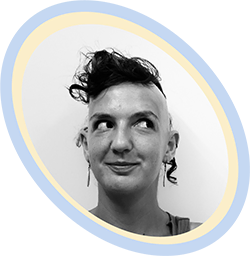
Alopecian. Yoga Teacher. Copywriter. Here to share information, offer support and show people the adventures that can lie in hair loss. I’m proud to have alopecia and I want to help others embrace their baldness, too!

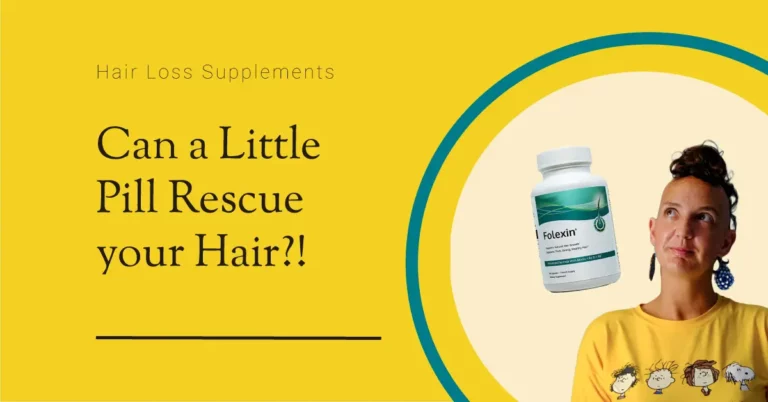
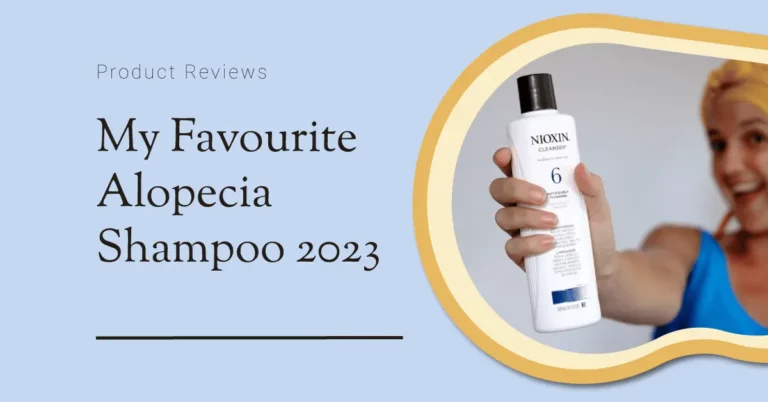
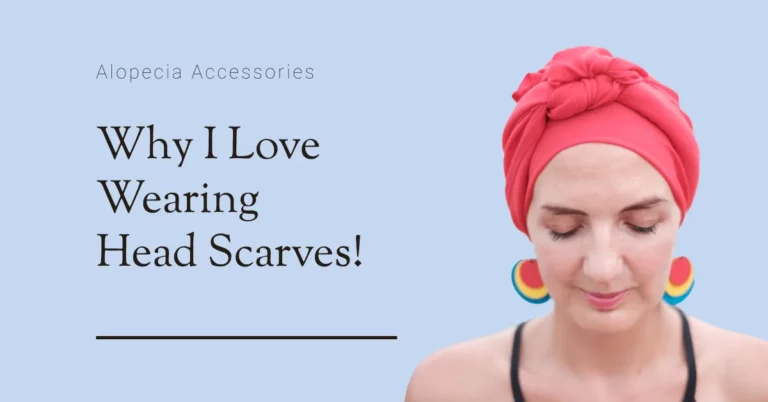

Every month, thousands with hair woes visit my site. The more the merrier! But it takes AGES to write posts and reply to emails. Don’t get me wrong, I love it! But running a website isn’t free. So I’m trying something new: I’m asking for your support. If Lady Alopecia has helped you, please consider buying me a (virtual) coffee or even become a patron of the site. Thanks!
I’m Emma. I’ve had alopecia for 24 years and I’m here to inform/hopefully empower people like me! Read my full story here. But I’m not a doctor, so any advice here is based on my own research and experience. I’m also in a few affiliate programs – see my disclaimer page for more. Or contact me here. Also, why not join a thousand fellow alopecians and get my-semi regular hair about life with irregular hair?
Psst… If no welcome email shows up, check your spam.

Small print time: Ladyalopecia.com is a participant in the Amazon Services LLC Associates Program, an affiliate program designed to provide a means for sites to earn advertising fees by advertising and linking to Amazon.com.
Copyright © 2023, Lady Alopecia. All rights reserved. Important – By using this website, you promise not to steal stuff. Thank you kindly.
Join the gang and receive semi-regular news and joy from someone with very irregular hair.
42 responses
Thank you for this blog!! I was first diagnosed with alopecia areata in ’91 at the age of 6. I had flare ups for a few years after diagnosis, then it seemed to resolve itself and I thought I grew out of it. Fast forward to last week when I found several bald spots. Admittedly, I have not been taking care of myself; terrible diet, lots of stress, no exercise…. needless to say, I feel responsible for this flare up and am looking for motivation to kick start my health journey again. Thank you for sharing your journey!
Thanks so much for sharing your story, and I’m really sorry to hear about your most recent flare-up. Unfortunately things like stress and lifestyle can have a big impact on autoimmune disorders, including alopecia…but don’t beat yourself up about it, you’re only human after all!! But I’m so happy this post has perhaps motivated you to make those healthier choices again. Wishing you all the very best with your journey, and keep in touch! Emma / Lady Alopecia x
Most highly esteemed Lady A,
I love your blog so hard you don’t even know. As I wait 300 years for a Dermatologist appointment i’ve been desperately searching for some kind of info, any info at all about my whackadoodle situation that doesn’t seem to fit into a lot of categories; but your blog and this community is the support from afar that I needed. About 5 months ago I noticed my eyebrows and eyelashes started turning white and i appeared to be turning into the love child of Tilda Swinton and Mrs.Klaus. I’m an odd Strawberry-blonde mix (Ginger Spice or maybe Irish Setter/Golden Retriever) and figured that’s just what happens when we turn 42. Then, within a few weeks my rail thin hair became curly. I looked like Fozzie the Bear. A few weeks after that the hair around the nape of my neck and behind my ears turned white and started falling out. None of the hair on top of my head that is red has fallen out, it’s just hanging out ignoring the chaos below. I started seeing a lot of vellus hair flying around, now I’m seeing weird feather like starts that eventually fall out. I don’t know wtf is happening to me and can’t find a google about it anywhere but I’m coming close with your blog! I do have Rheumatoid Arthritis, getting tested for Celiac and did have very low protein and was anemic for a time…but feathers? Short of slow shapeshift into another type of mammal, I’m not sure what is going down but any suggestions are great. I’m trying to eat more protein. Any regrowth I’ve seen has been white hair in distinct patches of white and super crinkly and dry. I don’t know if I need a dermatologist so much as a Shaman so you are the next best thing. Congratulations on the new life force you are bringing into the universe! Sending all good vibes so that Emma Jr. has a smooth arrival into our world.
Cheers,
Shannon
Dear Shannon,
Thanks so much for your comment and for sharing your experience. And I’m truly sorry for the MASSIVE delay…I normally try to write back quickly but Emma Jr (Baby Sunny!) is now 10 weeks old, so I took a little break while getting to know her!
Anyway, thanks for your patience…and for your lovely feedback, I’m so happy my website has provided some help (and a sense of community) where the dermatological route has perhaps proven frustrating. I know how bloody hard it is to go around the houses with this (and how expensive it is, too!) All you can do I guess (apart from seeking a shaman!) is know you’re not alone and there are other alopecians out there you can turn to. So good on you for reaching out!
God it does sound so frustrating, especially when there doesn’t seem to be any logical pattern to it. (All I can say to that is how illogical alopecia seems to be, affecting us all differently. My right eyebrow has now disappeared entirely, and now a huge patch on the very top of my head since Sunny was born). One of the main culprits, aside from diet, seems to be hormonal changes. When I went to that FM doctor, she said I had pretty much zero progesterone (also making it hard for me to get pregnant) so I took a bio-idential progesterone cream et voila!! That seemed to help in many ways. So I think you’d be doing well to boost your iron and protein levels, especially considering your history, but maybe it could be worth getting your hormone levels tested too. There’s gotta be a better reason than simply getting a little older!
I should mention though that two types – androgenetic alopecia and particularly frontal fibrosing alopecia – are more common in women as we get older and unfortunately there doesn’t seem to be many treatments available. But I’m a firm believer in diet and lifestyle making a difference (as you’ll have gleaned from this post!) so it couldn’t hurt to try.
Anyway, thanks so much again for your comment, and your well wishes. Good luck with everything, keep in touch and sending you lots of love.
Emma xxx
Hi Emma,
Thank you for your very inspiring journey. I came across your blog because I was looking for some information about the benefits of aloe vera for alopecia.
I am also going through alopecia but I managed to keep it under control and now I am on a slow regrowing phase. I started losing my hair 5 years ago and gave up traditional medical treatments after losing money, time, trust and hope with doctors, trichologists, and quick-fix miracle products.
I decided to give a try to garlic oil and I had more results in a couple of weeks only than during 4 years of medical treatments. But then it stopped being effective. I turned to water-based products on my hair and now I am using rosemary hydrosol and aloe vera gel in my scalp, and Vitamin D3, iron, and zinc supplements. I also did some research about plants influencing the immune system. I made the mistake to buy herbal teas of Echinacea and Astragulus (very good for low immune system but not for hair loss) and I didn‘t even finish drinking my tea that my head started scratching (not good!). I needed plants to regulate my white blood cells’ activity (cells responsible for attacking hair), not stimulate them!
I am now regularly drinking organic red clover flowers as herbal tea. It is said to be very effective for hair growth and had some good results for people with alopecia (Scientific studies). I am also in a grain-free, gluten-free, dairy-free, vegetarian diet,
Good luck
Hi Mossane,
Thanks for your lovely message, I’m glad my journey has inspired you! And also glad to hear you’re experiencing regrowth in your own case…I totally hear you on wanting to give up on conventional medicine practices and looking for a more holistic approach. In my opinion, it’s a lot cheaper and often safer, too!
That’s amazing about the garlic oil – I had tried raw garlic, red onion and fresh ginger also (more on that here) but never thought of making garlic oil…good tip! Did you just blend and strain garlic or try a particular product? Thank you for the very helpful tips on plants for hair growth, that’s great! I must research more into that myself, and maybe write a full post on it. Good to know about that red clover flower tea, too…sounds tasty, also! 😉
Keep up with that diet you’re on, also, that sound really help. And thanks again for sharing your tips.
All the very best!
Emma 🙂
Hi Emma I’ve just come across your website and it has totally refocused my plan of action. I had recovered from Alopecia for 7 years having lost over 70% of my hair. This was after stopping all steroid injections and medical interventions and going it alone through diet changes. However it’s returned on a massive scale so I’m going to reboot my diet. Just a quick question. Did you do find a juice cleanse helped or smoothie only diet for a few weeks would help x
Hi Joanne, thanks so much for your lovely message! And well done you on making changes to your diet, I know it’s really tough but as you’ve seen, so much better in the long run than those strong steroid injections! I’m really sorry to hear it’s returned, though…but at least you have an idea of what you can do to encourage growth again! To answer your question, I didn’t do either, I did a 5-day gut cleanse recommended by my Functional Medicine doctor. She said it would be too much pressure on my adrenals to do a juice only or smoothie diet so I had a special protein powder (which she called ‘medical food’) from a company called Nutri Advanced. The powder is called Ultra Clear Sustain, I got it from the Natural Dispensary and I think it’s on Amazon, too. Or you can order direct from the manufacturer. I talk a little about it in this post! Basically what that did was to clean up my gut (without me feeling really weak in terms of energy, etc…I was also allowed to have steamed broccoli and green beans, lettuce etc – my doctor told me to make sure I wasn’t hungry). I know that these juice diets can be very effective for some people but honestly she told me that since my hormone levels and blood sugar levels/adrenals were already unbalanced, it wouldn’t have been good for me.
Perhaps you could see a nutritionist or FM doctor to come up with a specialised plan for your specific needs? I’d avoid just trying a fad juice diet as they don’t suit all body types and anyway, can get really expensive for what they are! But that’s your call. In general, I’d say that yes, you may need to do a cleanse of some sort before you begin dietary changes like an elimination diet. A good probiotic after the initial cleanse is a good idea, too.
Hope that helps, Joanne! And best of luck!!
Hi! Thank you for all of the wonderful and helpful information. I found your page on my frantic search of how to help my son who just got diagnosed with AA two months ago. He is 15 years old. We’ve had two appointments with his dermatologist and currently using a topical steroid solution. At this point we don’t know what to expect. The dermatologist gave us 3 different scenarios of possible prognosis. Im praying for best case scenario that it will be a one time incident. But i also have to prepare myself for the worst case which would be a lifetime of alopecia..and possibly alopecia universalis. Do you have any advice on the best way to help a teenage boy dealing with this? I mentioned the AI diet and he was dead against it because he loves milk. I want to arm him with the best tools to heal his body from the inside so that we can stop the hair loss. He has many bald spots but because his hair is long (thanks quarantine!) he’s able to hide it some. He also uses a product called Toppik which he really likes. It’s good at covering up the really noticeable patches. I also give him Korean red ginseng and apply castor oil to his scalp. I’m also going to look into in the biodome home test.
This is early in the journey and alone I cry and am terrified for him. He doesn’t talk about it much, but has always been one to internalize his feelings. My heart aches for my son. I know this is such a difficult situation for any body but I feel as a teenager, it has to be even more so.
Thank you again for providing so much insight.
Wishing you the best of luck in your journey.
Hi Alex,
Thanks so much for sharing your son’s story and for your feedback about my website. I’m really sorry to hear what you’re both going through – AA is never easy to experience, but especially at such a young age. It’s very possible that his AA is related to a hormone imbalance (at that stage in his life, it’s not uncommon) so hopefully it will resolve itself as he grows.
However, you are right to mentally prepare yourself for more long-term effects – although don’t worry, just because he has AA now doesn’t mean it’ll develop into AU. While I’m personally not a fan at all of topical steroid creams I understand that you want a fast treatment to resolve the issue. But please note, these can only work to an extent and should not be relied upon as a long-term solution, particularly if the extent of his alopecia worsens. Of course, I’m not a doctor but I can only share my own experience…in that these creams gave me headaches, thinned the skin of my scalp and could be the reason for ongoing immune/gut problems I’ve had ever since. But whatever route you take, medication or holistic, that is your call!
Regarding advice…I’m actually writing a series of guides for parents of children with alopecia right now – as a result of all the messages and emails I’ve gotten this year, more than ever! I’m just finishing up on the young children one but intend to do the teenager one next. Please join my newsletter if you’d like the latest info about that. In general, I would try not to draw too much attention to it. Show him you’re there for him and let him know he can talk to you at any time but (in my case anyway), sometimes teenagers just prefer to handle things their own way and try to live life as normal without constantly being reminded about a thing that makes them different.
I totally get that as a parent, you’ll want to ‘fix’ things…but perhaps by focusing on it too much and bringing him to various appointments, it could be causing more stress…does that make sense?? It’s a shame about the AI diet as it can be really beneficial but again, I wouldn’t force anything. If he’d be open to cutting out wheat/gluten for a month and having alternatives (corn tacos, rice noodles etc) instead that would be huge. If it’s hormone-related, you could get him tested to see if that’s the case. But if you’d rather keep things at home, fish oil supplements (with Omega-3 and DHA) are great for hair, as are the B vitamins (including biotin). Hopefully he gets plenty of protein in his diet and try to avoid processed foods/sugar!
Toppik is great for a bit of confidence, I used that myself. I would use it sparingly, however, as it’s full of chemicals and wouldn’t be ideal to support hair growth. Both treatments you use are great…add a couple drops of peppermint essential oil to the castor oil too, it’s amazing – read my full post on that here.
I don’t know if he’d be open to it but mindfulness tools like keeping a journal, writing gratitude lists or using free meditation apps (Insight Timer, Calm app and Headspace are all great) could help him get a handle on his condition…and they’re all things he can do in his own time, a way to express himself. I found that sharing my condition and writing about it was incredibly therapeutic. He might not want to share publicly but even for himself, he could write about his experience and just keep that to himself. Perhaps that’s something you could suggest!
I’m also here if he wants to reach out to me. I first got AA when I was 11 so I know what it’s like to grow up feeling anxious and frustrated with hair loss!
I really hope that helps, Alex.
Thanks so much again for writing in and take good care.
All the very best to you both,
Emma
Emma –
You are such a blessing. Thank you for taking the time to read my message and responding. You’ve given me such great advice. I think you’re absolutely right about giving him the time and space to process this on his own. We’ve stopped the topical steroid because it was causing a lot of inflammation, ironically. I don’t understand this as I thought the steroid is supposed to help with that. He’s now alternating every week with 3 different medicated shampoos. He started getting really bad flaky dandruff with the topical steroid solution. So yeah, not liking that very much at all.
For now, I’m just praying and hoping that whatever triggered this immune response will soon turn off so that he doesn’t suffer any more hair loss. It’s all we can do, just wait and hope for the best.
Thank you again for the everything. I’m signing up for your newsletter so that I can keep learning from you and your experience.
Best of luck!
Alex
Hello again, Alex,
It’s no problem at all – I’m more than happy to help. It’s why I’m here! I didn’t really have resources I could turn to when I was diagnosed so that’s why I set up Lady Alopecia…and it’s wonderful to hear that you find my advice helpful. It’s also good to hear you’ve stopped with the topical steroid stuff (although I am sorry to hear about the inflammation and dandruff). Have a look about my post on aloe vera, as that’s a brilliant way to bring that inflammation down naturally. I hope the medicated shampoos help, too! Yes, unfortunately sometimes all we can do is wait these things out…if he’s never had it before though, and if it’s stress or hormone related, there’s a very good chance it will all resolve itself given time. Thanks for joining the newsletter and I hope you enjoy the updates!
All the very best to you both 🙂
Hi,
My daughter is 15 also, she had long thick shiny black hair and it all fell out in January 2021. We did the steroid injections when the bald spots appeared but it didn’t help. She is completely bald and now wears a wig. I cried for her every night in private as I saw her slip into a depression and withdraw. We got her a good therapist to talk to and she got a beautiful natural wig from childrenwithahairloss that helped her look and feel better. She has started to re engage with friends again. She still won’t let anyone see her bald she hasn’t accepted it completely yet but she is getting better. As a mom, I know how it feels as a helpless parent. Hang in there! Let your son know he is not alone.
Thanks for your comment, Laura and for sharing your daughter’s story, also! I’m sure it will help Alex to hear of other parents in a similar situation. I know how tough it is to go through this as a teenager but it’s great that you’ve found someone for her to talk to, that should be a great help…and lovely that you found a wig for her too, for that extra bit of confidence! In terms of accepting the condition, it will certainly take time – it took me 15 years – but by supporting her the way you’re doing now, and getting her to share how she’s feeling, I’m sure that acceptance will come earlier for her. Thank you for your encouraging words and I’m sure any parents reading this will find them valuable. xo
Hi Lady Alopecia,
Well, what a lovely page to come across. I had been searching for a good diet to improve alopecia. I’ve had alopecia for around five years in the form of large patches, loss of hairline and eyebrows. I’ve had my time feeling sorry for myself, crying in a ball of frustration and feeling ugly. I’ve been through buying caffeine shampoo (not worth it now) and supplements, but not taken consistently. Anyway I have two children who as they should happy to point out mummy’s baldness or tell strangers that mummy is wearing a wig. So you have to face the facts, be as confident as you can be and crack on with life. Your page on diet is great. I’m going to try wheat free, take some supplement and be kinder to myself. I have a stressful job so drink quite a lot of coffee…oops! Will try and knock that on the head. Anyway…we’ll see.
Dear Tracy,
Thank you for your lovely feedback – I truly appreciate it! And I’m so sorry to hear about your ongoing alopecia…sounds like it’s a similar kind to what I’ve got, although the eyebrow loss is a relatively new experience (since April 2020). I hear you, about the frustration and self-loathing, plus trying whatever “cures” I could get my hands on. The best thing I did was to find acceptance, but it took a loooong time – and I have my yoga/meditation practice to thank for that (hence me teaching a Yoga for Alopecia course now!). Of course there’s days when I wish it weren’t this way but like you say, we simply have to crack on with life – and to be grateful for everything else about our health and our lives in general! Your kids will keep you in check by the sounds of it, too. 😉 Yes, and please let me know how you get on with the diet!! I’ve found it to be a massive help and the supplements too, when I take them consistently. I now allow myself a coffee a day, occasionally two but hey…it’s all about balance, right?! We do what we can and forgive ourselves the occasional slip. 🙂 Keep in touch, and good luck!!
Emma (Lady Alopecia)
Hey! How did you know you have alopecia? After reading through a lot of stuff and checking with the doctors ( though no one suggested about how bad my hair loss is. They said its normal ). But I feel its not. Could you help me as in how to surely know if I have alopecia or not ?
Hi Inirah,
Thanks so much for your question. I first got diagnosed when I was 11 or 12 years old, when my dad took me to see a trichologist (hair doctor). But you could also see a dermatologist, or a good GP should be able to determine it either…some hairdressers might be able to help, too. Are you seeing any bald patches or is it more shedding from your entire head? It is normal to shed up to 100 hairs a day, and the hair growth cycle does include a shedding phase (the telogen phase), which can last up to 3 months. Normally though, it’ll move into the anagen phase (growth) again. Without knowing more about your personal circumstances I wouldn’t be able to tell you whether it’s definitely alopecia but some things to look out for are: pitted nails (sometimes with white spots), bald patches appearing or exclamation hairs (short stubby hairs) that often indicate an autoimmune response. Please have a look at this page with more posts I’ve written about alopecia – I hope you find them useful!
Take care, and wishing you all the best.
Emma
Hi there,
Thank you for your really interesting tips..
What is a functional medicine Dr please?
Thank you
Hi Clair, thanks for your question! So a functional medicine doctor is someone who looks at the entire body, in a more holistic way. They’re still clinically trained (Dr Amy Myers, the person who wrote that book I recommend about autoimmune conditions and nutrition, was an emergency room doctor before she started her private FM practice. It’s all about helping the body and its organs function in an optimal way, through diet, supplementation and testing. It’s really helped me out and I like it’s something I can control myself (eg through the foods I eat etc) rather than relying on medicine with often bad side effects! I hope that helps?
So happy I found your blog I just recently found out I have Alopecia Fibrosis. So I need to really start changing what I eat any advice for me? I’m losing hair in the frontal area of my head.
Hi Marielli!
Thanks for your question – and I’m really sorry to hear about your diagnosis. I would recommend starting by cutting out gluten/wheat and sugar if you can. For some people with alopecia, dairy and eggs can be a trigger, too. For me, I need to stay off tofu/soy products also!! Alcohol is also best avoided, due to the high sugar content. There actually seems to be differing opinions on coffee, I find that I’m ok with one a day. 🙂
In terms of things to eat more of, lots of raw ginger and especially tumeric to bring down inflammation. If you don’t like the taste, there are great supplements out there – here’s my full article about turmeric to find out more! 🙂
Wishing you all the very best of luck, and take good care. xxx
Hey lady !!! I found your blog trying to find a good shampoo for me. I loved it ! Plenty of information. I was living in Australia and I found there a really good supplement called “JS health energy and hair” and it helped me a lot with my hairloss, less than one month I could see a big difference. Actually I’m stuck in Brazil and I’m a bit sad because I can’t find here, but I’m gonna try some of these supplements that you showed.
Thanksss
Hi Natalie, thanks so much for sharing that info! I actually haven’t heard of “JS health energy and hair” before but it sounds great! I found it on Amazon here but I’m guessing maybe that provider doesn’t ship to Brazil? A couple of other options…I see that JS uses kelp as one of the star ingredients so you could try this krill oil supplements I mention as an alternative source of Omega-3. Or have you ever heard of Folexin? It’s also a brand of hair growth supplements (with digestive/energy benefits too)…you can read up about the brand in this post I wrote last week!
Otherwise yes, give the supplements I mention here a try…I hope you find them helpful!! 🙂
And thanks again for getting in touch!
Thank you for sharing this, my husband has got a big hair-fall problem maybe this post will help us to cut down on certain food products which affect his hair issue.
Thank you for your message, Supriya! I hope it helps your husband like it helped me! I’ve now been on the AIP diet again for just over 2 months and have noticed a massive difference in my mood, energy levels, skin and even a little hair growth…so stick with it if you can!! And feel free to share how you guys get on with cutting out those foods! 🙂
Take good care x
Hi Emma,
How are you ? I hope you had an Amazing wedding!!!
How times have changed since I last wrote in! Hope you are keeping well at this unsettling time.
Just thought I would give you an update on the elimination diet I tried for 3 months. Jan- April . I eliminated dairy wheat , eggs , rice , corn, red meat.
I also stopped the contraceptive pill, took probiotic and vit D.
In the last few weeks I have seen significant improvement in 2 of my larger patches. One of which has been stubborn for over a year. So I have been so pleased with this. A few others are showing promise too. I do however have newer patch around my temple which is frustrating but I’m applying fresh aloe Vera every day and hoPing to see it heal ASAP.
Since the diet , my scalp feels far less inflamed on the patches and the colour of patches changed from pink to healthy flesh colour .
I just thought I would send you some words of encouragement on your elimination diet. I too had headaches and I have reintroduced a small amount of dairy ( nothing major ) and feel it has helped the headaches so I feel it was my body’s way of telling me I do need some dairy.
I am now gluten , wheat, rice , corn and ‘partially’ dairy free and going to continue this way and see how it goes.
Keep going and I hope your headaches get better and your fuzz continues.
Aloe Vera has been brilliant so would defo recommend the fresh stuff straight from the leaves!!
Best wishes,
M xx
Hello again, dear M… 🙂
So lovely to hear from you, and thank you for taking the time to update me on your progress! Yes indeed, a very different world since January, I hope you and your loved ones are keeping well and safe. It is so good – and encouraging – to hear how effective the elimination diet has been for you. I noticed you were off rice as well, so even more restrictive than my one now! Actually, when I read The Autoimmune Solution (which first led me on this journey), I followed the plan set out in that and I couldn’t have rice either (or pulses, beans, seeds or nuts…it was pretty tricky!!) My diet this time seems to be a little more flexible although I do notice that if I’ve a lentil or rice-heavy meal I’ll get very bloated with some pains. But thank you for the encouragement about the headaches etc…it’s been a little frustrating to still have them when I’d been feeling so great 3 weeks in – but I had to reorder my supply of supplements so I think going without my protein powder and fish oils even for a couple of weeks had a pretty bad impact! I’ll be back on track with the supplementation plan as soon as they arrive, though. 🙂
Great to hear the aloe vera is working for you, I’m still using the fresh gel from the leaves (which I keep in my fridge) during the daytime and a mix of PEO and coconut oil at night. So far, so good – the white fuzz on some of my patches is slowly turning into longer white hairs. Interesting to hear that some dairy actually improves your headaches. I think that it might be a similar case for me, and that my body needs red meat, too. But I’ll stay off them until I can slowly reintroduce them without furthering inflammation. I think soy, eggs and wheat are things I’ll need to avoid for good!
Thank you so much again for your message, M. I wish you continued health and happiness and look forward to hearing your next progress report!
Take care,
Emma 🙂
PS: If you haven’t already, I’d love to invite you to join my mailing list, as that’s where I’ll be sharing my case study of the AIP diet and findings soon!
Hi – new here. My 8 year old son came down with Alopecia at age 7. Starting with one quarter sized patch has progressed to consume most of his head and partial eyebrows. At the time he was on Zantac for what we thought was acid reflux and we ended up finding out was anxiety. (Long story associated with that mess I will spare you). We removed the Zantac and started counseling. He also has the faint red blotchy on the nape of his neck but we have noticed lately that he now has all these baby white hairs in the places he lost hair last summer. He is still losing in some places yet and those locations are completely barren of the baby hairs. Your site is truly inspirational and informative for me where there are not many practical resources out there! So thank you 💕
We have done lavender EO on his scalp some (with coconut carrier) – wondering if you know anything about lavender and EO – I had read some about it helping. Planning to look into peppermint now as well.
In the last year or so of this adventure I have placed our family on a more whole foods diet and as much organic as possible. We also do low wheat and low-no dairy. Diet can be more impactful then we give credit (especially in US medicine).
Hi Wendy, thanks so much for getting in touch and for sharing your son’s experience. I’m really sorry he is going through this, I know how scary it is to get it at an early age (although I was slightly older, at 10). And I’m also very sorry to hear about his anxiety, I’m glad he’s now talking to someone about it, though.
Wonderful to hear he’s getting baby white hairs back, that’s a good sign! And don’t worry, I’m sure that even in the areas that may seem barren now, he will experience regrowth at some stage. 🙂 I really appreciate your kind words about my site, it’s why I created Lady Alopecia – to be the resource I never had – so feedback like yours is wonderful to hear. Thank you.
Interesting you mention the lavender EO: I normally use it just for relaxation/stress relief but haven’t yet as a hair mask. Have you read my post on the best oils for hair growth? It might give you further inspiration! I also have separate ones on coconut oil and peppermint EO (which are linked in that post) if you’re interested in finding out more. PEO is AMAZING, so definitely try it! In studies of mice, it’s proven to be even more effective than minoxidil. But just make sure you dilute it well in coconut oil (or similar) and keep it well away from his eyes.
Good to hear about your dietary measures, definitely recommend as little wheat as possible, cutting it all if you can, and cutting sugar, too! I couldn’t agree more with your final point – I have now been doing this autoimmune diet with supplementation for nearly 6 weeks and after just 3 weeks, started to see white fuzz back in the patches I thought were barren too – so diet is a HUGE factor!
Anyway, apologies for the long reply! But thank you again for your comment and all the very best to your son.
Emma/Lady Alopecia 🙂
Aw amazing- congratulations- Hope you have an amazing wedding day! I’m sure you will! My boyfriend thinks my patches seem hairier ( fine blonde hair) and it’s now 2 and 1/2 months into the intolerance diet. I think they do feel fuzzier but will continue and see what happens over next few months. Have tried pepper mint oil tonight so again fingers crossed for that too! M x
Thanks for your congratulations!! And amazing news about your patches, that’s great! Keep me posted…and I’ll be uploading wedding day alopecia pics at some point! 😉 xxx
Yes the 3 key foods I was told to cut out were ‘cows milk , eggs, and wheat’. I am so curious to know if there is any link to this and Alopecia areata. I have tried to research but not been able to find lots of information on it . That’s so interesting That your shedding reduced. I have been doing it for 3 weeks and have definitely noticed an improvement in my skin so fingers crossed it will also help the patches!!! I have had IBS for years and I am thinking that if you can work on your gut then this will in turn help reduce inflammation in your body and thus your hair!! Don’t blame you for falling off the bandwagon at xmas!!! Everyone needs to indulge at xmas! Yes please keep us posted on how your are getting on! Another thing I think has helped is applying fresh aloe Vera to the patches- I know you have written an article on this. I notice that if the patches are slightly pink and inflamed – the aloe Vera actually reduces the redness instantly which is amazing! Please please keep us posted on any new info you have ! This blog has really really amazing when I have been feeling so low . Xx
That is so interesting, that you were told something so similar to me! I’ve actually been asked to a lay panel for ALopecia UK and one of their research proposals is all about the link between gluten and alopecia. Will be great if it gets cleared and we get actual results! I definitely agree with your point about the gut and inflammation – the gut/brain connection is something I’m fascinated by and doing a lot more research into now. Yes, I will of course keep you posted, although my wedding is next month so I’m not going to start the diet until after then after all…I’m taking supplements in the meantime and avoiding dairy, eggs and wheat but not being too strict on myself until afterwards! Aloe is the best, isn’t it? I love it! Also check out my new post about peppermint oil, I think you’ll find it interesting…:)
Hi lady alopecia,
You’re website is amazing. Thank you so so much .I am suffering with alopecia areata and have done for the last 2 years and I’m suffering with extreme health anxiety . I have taken on your advice and seen a nutritionist and have a lot of highly intolerant foods. So I am cutting these out and am going to try and reduce the inflammation in the body. I was just wondering how you Are getting on with your nutrition and whether you have seen any positive results?
Thank you vey much in advance .
Hi! Thanks so much for your feedback, it’s really appreciated. I started the site to hopefully provide other people with the information I never had and I’m so glad that you’re finding it useful! Interesting also that the nutritionist flagged some food intolerances…out of curiosity, did these include wheat, dairy, eggs or tofu? They were my big markers! I saw some great improvements when I went on an AIP diet – which not only included cutting out certain foods but had a big supplementation plan also. My hair stopped shedding and improved its texture, my skin cleared up and I noticed much less anxiety, too. Unfortunately, I fell off the wagon a bit at Christmas! But I’ll be restarting the diet properly next month and plan to record my progress on my YouTube channel…will post a full case study here too. Stay tuned, and good luck with reducing your inflammation also…would love to hear how that goes!
Thanks for this this is amazing. I just went to the doctor the other day and got told I have alopecia.. was so very shocked and upset and still letting it process in my mind. I am a hairdresser also so I do have a bit of knowledge about this, but with the shock of my body showing me to slow down with the stresses of life my mind went blank and was walking blind..
This is where this amazing site and pages have really helped me be at a little more ease and clearer mind on how to help my little head 🙂
So I’m very nervous about washing my hair again incase I find clumps come out(even though that is probably not going to happen that way in my case) but I’m very worried on what shamp&cond to use.
This has been a lovely help and hopefully I can find something that works for me
Hi Abbey,
Thank you for sharing your experience and I’m really sorry to hear about your alopecia. It’s never an easy thing to hear, but probably even more so in your line of work – where you’re surrounded by hair all the time. But like you say so well, it is often your body’s way of asking you to slow down a little in whatever way you can.
I’m so glad that you’re finding some comfort in this site and that you’re gaining something from my posts. Please don’t feel worried about washing your hair in case of more shedding, it might need to happen as part of the hair growth cycle but alopecia doesn’t have to be permanent! Try those nutrition tips I mentioned and check out this post I wrote about the different shampoos available. Wishing you all the best. 🙂
I did just this and my hair is coming back – even my eyebrows and eyelashes. Only thing is that they’re white hairs. But I’m just happy that I am growing hair. I’m sure I’ll have some color in my hair soon enough. I’ve been grain, gluten and dairy free for 4 months now, and according to my nutritionist, it takes 8 months to fully heal the gut. I’m willing to ‘do the time’ for my hair back. I’m also about 95% organic and even switched my body products to natural products. If I can eat it, I can put it on my skin. :0
Hi Jodi,
Thanks so much for sharing your experience – amazing to hear that it’s working for you!! And don’t worry about the white hairs, that happened me, too. As this post explains, they are a good sign! Sounds like you’re really on the right track (for your hair and overall wellbeing) so keep up the good work! 🙂
Thanks for sharing the detailed information. Hope these tips will save my hair.
Coffee is due on me!!
Thanks Mansi, I’m glad you enjoyed it! 🙂